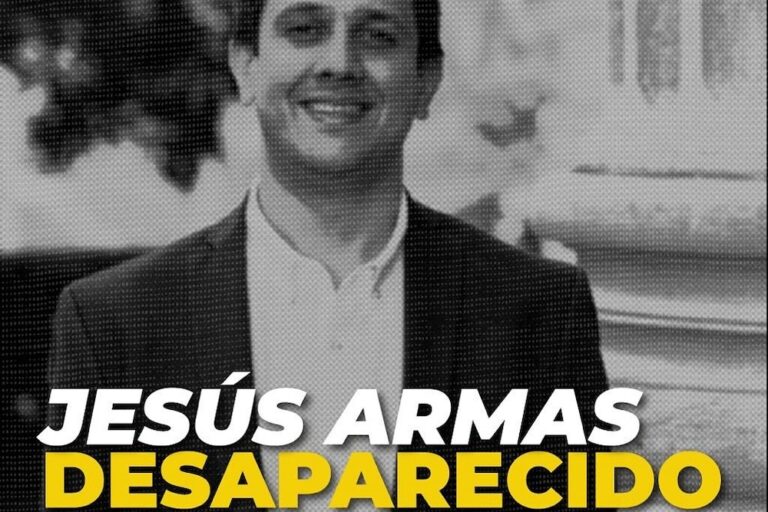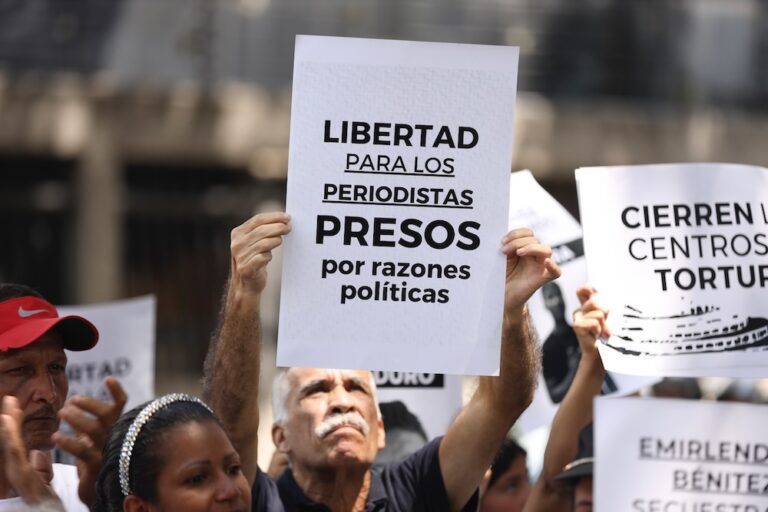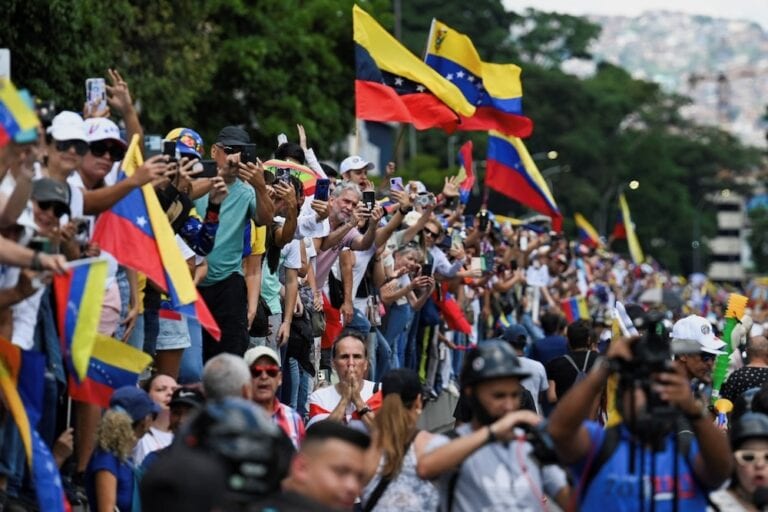(IAPA/IFEX) – The following is a 1 November 2001 IAPA press release: The IAPA condemns President Chávez’s attacks against the media and journalists Miami (1 November 2001) – The Inter American Press Association lamented and condemned as “crude and anti-democratic” Venezuelan President Hugo Chávez’s latest verbal attacks against journalists, the Venezuelan media and the IAPA, […]
(IAPA/IFEX) – The following is a 1 November 2001 IAPA press release:
The IAPA condemns President Chávez’s attacks against the media and journalists
Miami (1 November 2001) – The Inter American Press Association lamented and condemned as “crude and anti-democratic” Venezuelan President Hugo Chávez’s latest verbal attacks against journalists, the Venezuelan media and the IAPA, upon his return from an extended trip overseas.
According to IAPA President Robert Cox, “President Chávez’s repeated threats and insults against journalists, editors and press organizations do nothing more than point to his intolerance for press freedom. Our organization has been condemning these actions ever since he was a presidential candidate, as he was already threatening and attacking the media and journalists.” Cox recalled President Chávez’s famous phrase, uttered when angered by the media’s criticisms: “if they attack me, let them watch out, they’ll get as good as they give.”
Cox, assistant editor of the Charleston, South Carolina newspaper The Post and Courier, stated that Chávez’s “intolerant, crude and anti-democratic” statements “show that he is trying to frighten the media and journalists and thus create a culture of self-censorship, so that he can be presented in a favourable light by a manipulated and complacent press. This is completely contrary to what anyone with a democratic spirit would aspire to.”
In an apparent escalation of altercations with the country’s media and journalists, upon his recent return to Venezuela, Chávez made some fiery speeches against “the way in which the [Venezuelan] media functions as a dictatorship.” In particular, he insulted the president of the newspaper El Nacional, Miguel Henrique Otero. Referring to the IAPA’s analysis of the press freedom situation in Venezuela, presented at the organization’s recent meeting in Washington, Chávez stated that ” [the IAPA] have no right to condemn anyone else but rather should be critical of themselves.”
In addition to these attacks against the press, in recent weeks the National Telecommunications Commission has been investigating the 24-hour news station Globovision, because it distributed “false information” about taxi drivers’ murders. After these proceedings against the television station were launched, President Chávez warned, “don’t be surprised if, for reasons of national interest, I revise these [broadcasting] concessions.”
President of the IAPA’s Committee for Freedom of the Press and Information Rafael Molina drew attention to the advice Chávez was given by a gathering known as the First National Encounter of Community Communicators, organized by the Movimiento Quinta República. The recommendations from this gathering emphasized the need to censor sensationalist media which violate the right to truthful information, including fining humorous programmes that are detrimental to the president’s image.
Molina, editor of the Santo Domingo, Dominican Republic magazine Ahora, recalled that the IAPA had emphatically opposed Article 58 of the new constitution, which stipulated that “everyone has the right to truthful and impartial information,” because this clause on truthfulness would be used in the future to “censor independent media that do not agree with authoritarian ideas.”
In terms of press freedom, Molina warned that these actions and censorship methods are an indication that Venezuela is distancing itself from democracy and moving towards an authoritarian and intolerant model, such as the one Cuba embraced some time ago.
The resolution issued during the IAPA’s 57th General Assembly, held in the middle of October in Washington, states: “We condemn the Venezuelan government because it has a court system that serves its political ends, uses government-owned media outlets to intimidate and silence private media, scorn and publicly utter hateful comments against journalists, directors or editors, and as a first goal in the first phase bring about self-censorship in the country. This is an attack against democracy and fundamental human freedoms.


